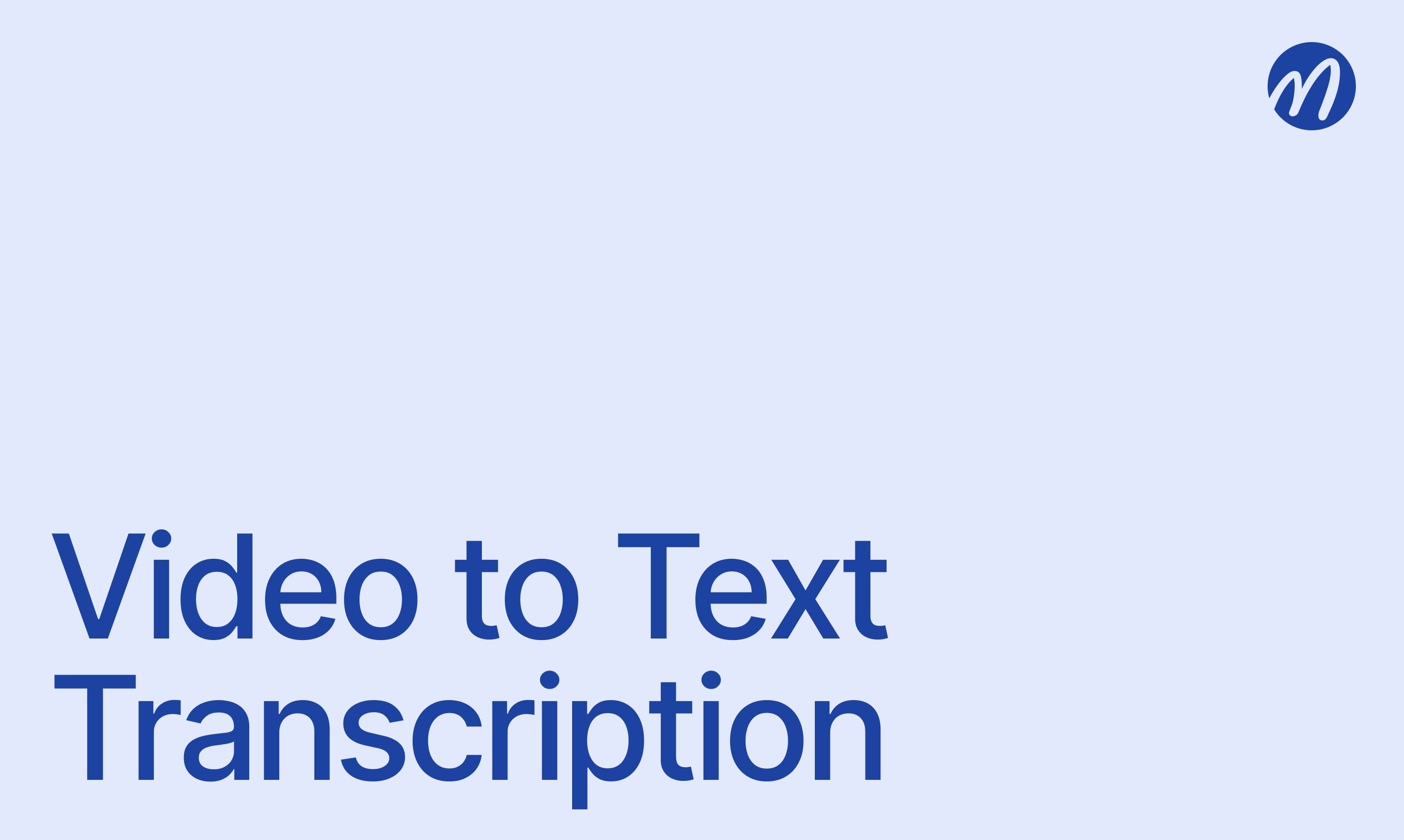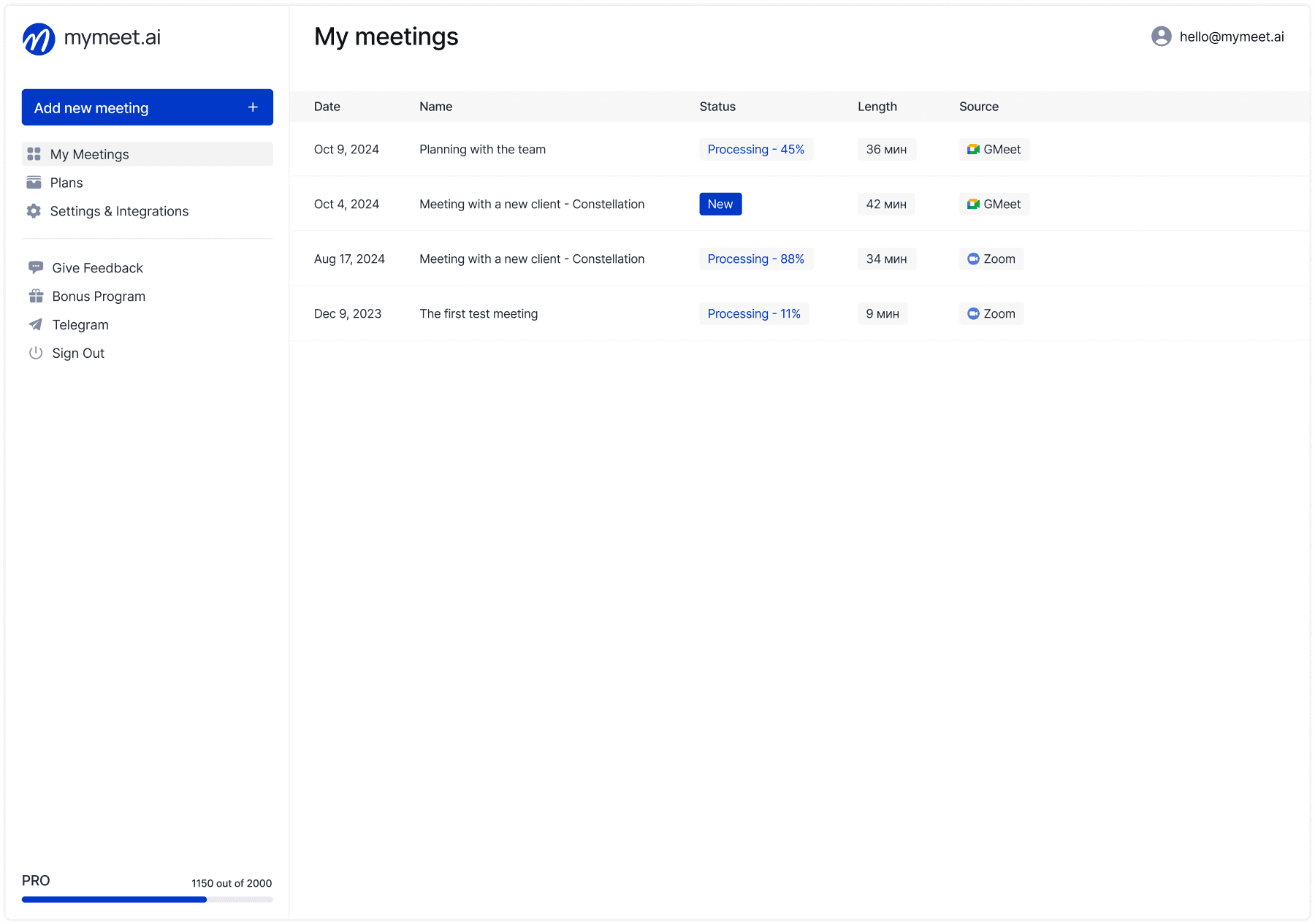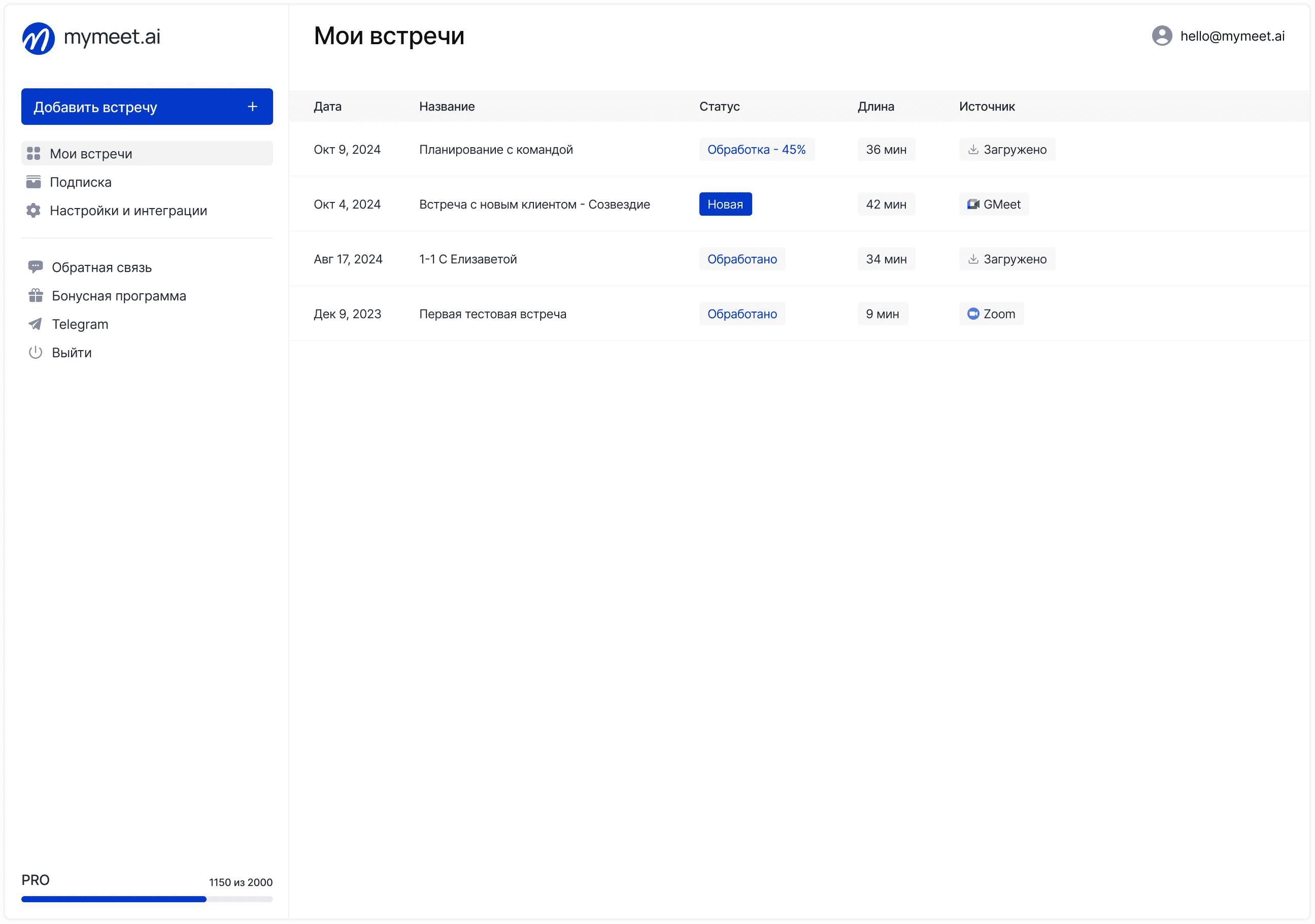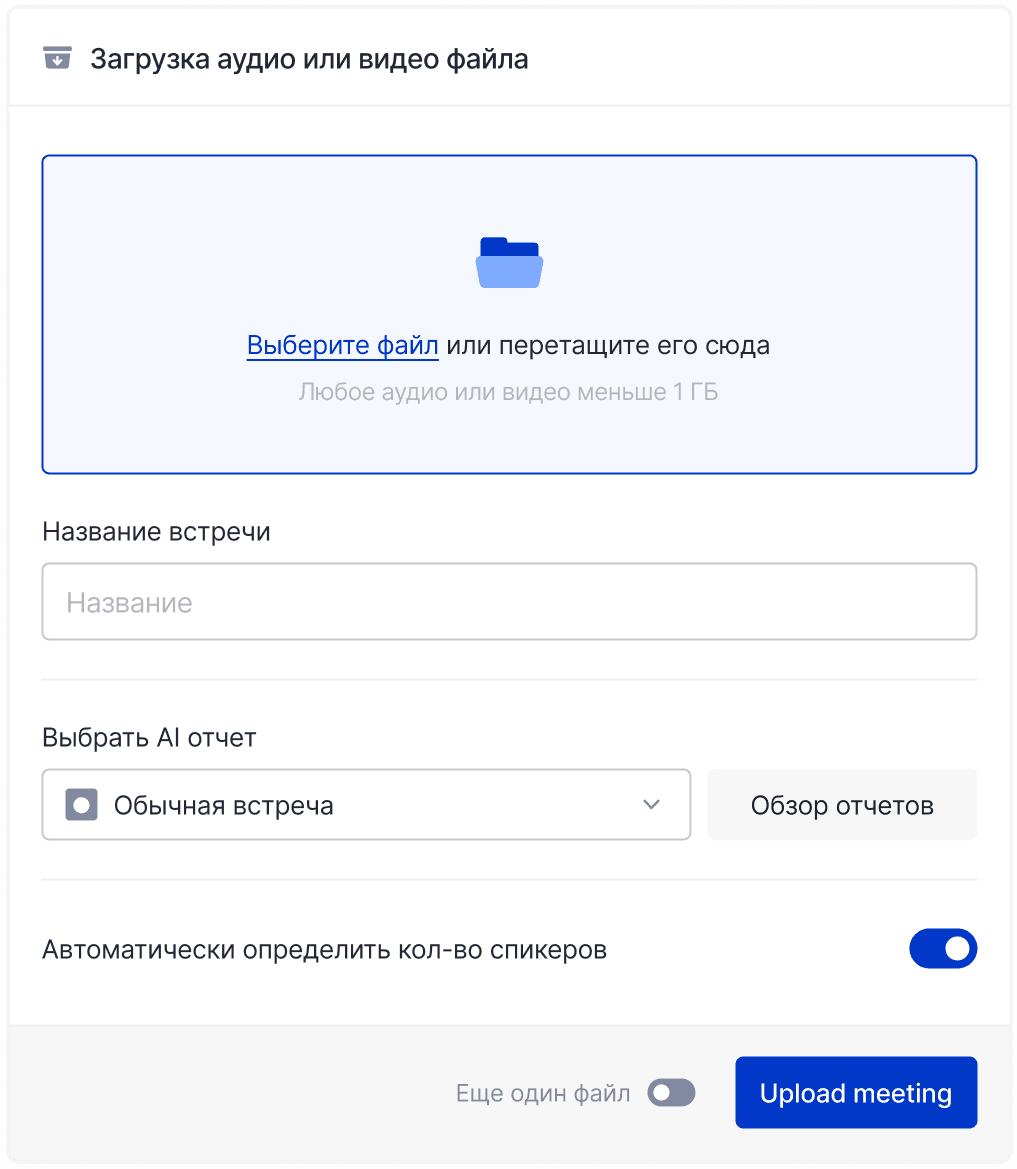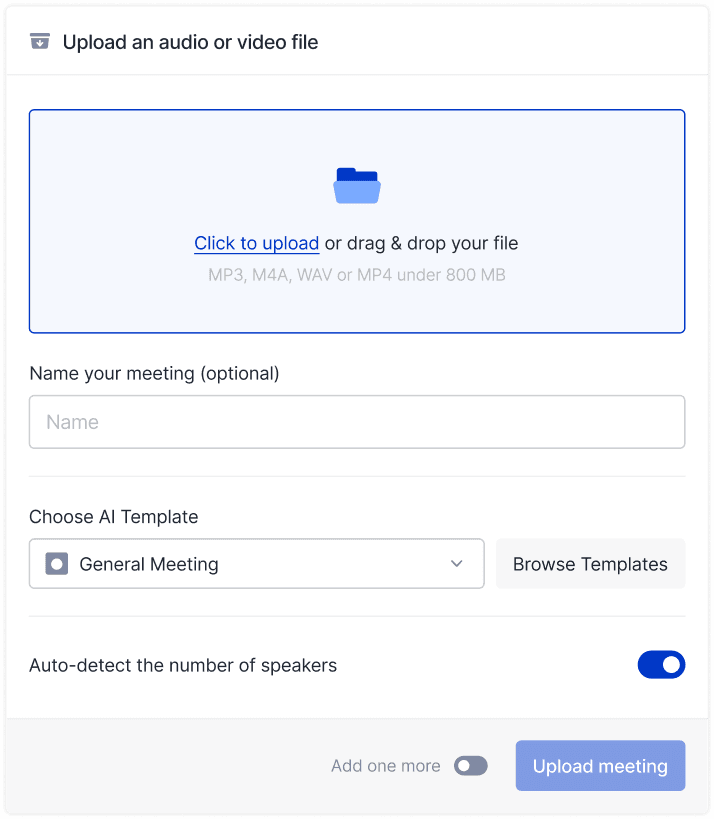Technology & AI

Radzivon Alkhovik
Jun 2, 2025
·
Updated on
Jan 10, 2026
60% of all internet content is in English, but 75% of users don't know the language. And we speak 3-4 times faster than we type. No wonder that in 2026, technologies for working with video and voice have become a real hit.
Whether you work with educational videos, business presentations, or entertainment content—modern tools will help convert them into text, translate them, or create brief summaries. In this article, we'll look at the best solutions of 2025 and help you choose what's right for you.
How Modern Technologies Transform Working with Video Content
Simply watching videos is yesterday's news. Today, you can extract much more from video:
Transcription turns speech into text that's easy to find and study
Translation makes content accessible to people from around the world
Summarization compresses an hour-long video into a 5-minute summary with the main ideas
Smart analysis finds key topics and patterns
Content search allows finding the needed moment in a huge video library
Previously, this took hours of manual work. Now neural networks do everything automatically, quickly, and with high quality. But which approach is best for your tasks?
Automatic Video Transcription: From Speech to Text in Minutes
Converting voice to text is usually the first step in working with video. And a real breakthrough has happened here.
How Modern Speech Recognition Works
Forget about the funny errors of old systems. Modern AI algorithms understand speech with up to 95% accuracy even with accents and background noise.
The system listens to the recording, breaks it into parts, and passes it through smart neural networks. Then it adds punctuation marks, removes filler words, and determines who is speaking and when. The entire process takes minutes even for long videos.
Built-in Functions of Video Platforms Worth Using
Most popular video sites already offer basic tools:
YouTube automatically creates subtitles (and does it better and better)
Vimeo allows adding and editing subtitles
LinkedIn automatically creates subtitles for business videos
TikTok adds subtitles even to short clips
These built-in functions are a great start, especially if you're just beginning. But for serious tasks, they often prove insufficiently accurate and flexible. This is where specialized solutions come to help.
mymeet.ai: Revolution in Processing Video and Audio Content

When it comes to professional work with video and audio, it's hard to find a more powerful solution than mymeet.ai. This Russian development created a real sensation in 2026, offering unprecedented accuracy and functionality.
Why Professionals Choose mymeet.ai
Unlike ordinary transcribers, mymeet.ai is a comprehensive platform for audio content analysis. The service doesn't just convert speech to text but makes this text truly useful:

Unmatched accuracy for Russian language (95%)—the system perfectly understands even complex terminology, professional jargon, and regional accents
Smart speaker separation—the algorithm automatically determines who exactly is speaking and correctly marks up the text

Intelligent content analysis—AI highlights key topics, decisions, agreements, and forms structured reports

Conversational AI assistant—a unique function that allows asking questions about video content and getting accurate answers
Multilingualism without compromise—the system works equally well with 73 languages, making it ideal for international projects
The main advantage of mymeet.ai is its processing speed. An hour-long video turns into detailed text in just 5-7 minutes. This is 2-3 times faster than the nearest competitors.
Practical Application of mymeet.ai for Video Content
Using mymeet.ai for video processing is incredibly simple:
Extract the audio track from the video file (through any online converter)
Upload the audio to the mymeet.ai platform
Choose the desired analysis type and result format
Get the finished material in a few minutes
The platform offers specialized AI analysis templates for different content types:
Educational video—creates a structured summary highlighting key concepts, definitions, and examples
Business meetings—the system automatically highlights decisions made, assigned tasks with responsible parties and deadlines
Interviews and podcasts—content is broken down by topics with highlighting of significant quotes and insights
Technical tutorials—forms a step-by-step instruction highlighting technical parameters and important nuances
A particularly valuable function is the AI assistant, which allows "communicating" with the video content. For example, after processing an hour-long interview with an expert, you can ask: "What three main startup launch tips did the speaker give?"—and instantly get an accurate answer.
New users receive 180 minutes of free processing without payment card binding. This is enough to evaluate all the service's capabilities on real projects and understand how much it can simplify your work with video content.
When Special Transcription Tools Are Needed
Built-in functions of video platforms are suitable for simple tasks, but for professional work, it's better to use specialized services:
Otter.ai offers decent English speech recognition
Rev.com combines automatic and manual transcription
Descript allows editing audio through text
Sonix works well with multilingual content
These services exceed built-in solutions, but in terms of Russian speech recognition accuracy and analysis complexity, they significantly fall behind mymeet.ai. This is especially noticeable when working with complex technical content or multi-sided discussions.
How to Translate Videos into Other Languages and Expand Your Audience
Video translation opens access to an international audience, but it needs to be done correctly.
Automatic Subtitle Translation: Fast, But with Nuances
The simplest approach is subtitle translation:
YouTube offers automatic translation into 100+ languages
Special services like DeepL provide better quality translation
Professional programs allow precise translation settings
Quality depends heavily on the language pair. For English, Spanish, or German, results are already close to human ones, but for rare languages, editing might be required.
Latest Simultaneous Dubbing Technologies
2026 brought a real breakthrough in translation technologies with voice preservation:
Microsoft Translator Live translates presentations on the go
Specialized.ai translates voice while preserving intonations and timbre
ElevenLabs creates voiceovers in different languages with emotions
These tools create the impression that the video was originally recorded in the viewer's language, which greatly increases engagement.
Cultural Content Adaptation: More Than Just Translation
Real video localization is more than just word translation:
Change examples and metaphors for the local audience
Account for differences in measurement systems
Adapt cultural references that might be unclear
Sometimes visual elements need changing too
These "final touches" can greatly increase translation effectiveness, making content truly understandable for the target audience.
Creating Smart Video Summaries with AI
Even having text, there's not always time to watch an hour-long video. This is where automatic summarization technologies help.
How AI Creates Structured Summaries from Videos
Creating an AI summary usually goes through three stages:
Converting video to text using any of the described methods
Processing text through AI (ChatGPT, Claude, Gemini)
Structuring and formatting the result
For a good summary, it's important to clearly tell the AI what you need. For example: "Create a summary highlighting the main ideas, definitions, and examples. Add a section with practical advice."
Techniques for Processing Long Video Materials
For multi-hour videos, a special approach is needed:
Divide the text into parts of 2000-3000 words
Make a summary for each part
Combine the results into one document
This method allows bypassing AI limitations and creating a cohesive summary even for very long videos.
Extracting Targeted Information from Video Content
Instead of a general summary, sometimes specific data is needed:
List of terms and definitions
Practical tips and recommendations
Statistics and figures
Expert quotes on a certain topic
In such cases, tell the AI exactly what you're looking for. For example: "Find in this text all statistical data on the smartphone market for 2024-2025."
Professional Tools for Working with Video Content
For serious projects, it's worth considering special solutions with advanced capabilities.
Programs for Creating and Editing Subtitles
Professional subtitle tools provide functions not found in built-in editors:
Subtitle Edit allows precise timing adjustments and process automation
Aegisub offers rich styling capabilities
Amara supports team collaboration on subtitles
Caption combines AI and professional tools
These programs are indispensable for creating quality subtitles with precise synchronization and beautiful formatting.
Cloud Services for Comprehensive Video Processing
Cloud solutions offer advantages in accessibility and scalability:
Rev.com combines machine and human work for better quality
Maestra specializes in translation and localization
Happy Scribe is oriented toward media professionals
These services usually offer a combination of automatic and manual services, allowing for superior quality.
Practical Application of Video Content Processing
Processed videos are used in various fields and significantly increase the efficiency of working with information.
For Learning and Self-Education
Students and self-learners use processed videos for:
Preparing for exams based on video lectures
Creating a personal knowledge base
Quick review of complex material
Accessing content in other languages
For Business and Professional Development
Professionals apply these tools for:
Extracting valuable advice from industry webinars
Learning new methodologies without watching hour-long videos
Creating an archive of professional knowledge
Sharing information within a team
For Research and Analytics
Researchers use these technologies for:
Comparing different sources on the same topic
Creating trend reviews based on expert presentations
Analyzing competitor strategies
Quickly studying new knowledge areas
The Future of Video Content Processing Technologies
Technologies continue to develop rapidly, opening new possibilities.
What Awaits Us in the Coming Years
According to expert forecasts, we'll soon see:
Multimodal analysis—systems will understand not only speech but also actions, gestures, objects in the frame
Translation with voice preservation—video will sound in any language with the original speaker's voice
Interactive summaries—you'll be able to ask questions about the content and get answers
Automatic information verification—identifying inaccuracies and errors in content
How This Will Change Video Content Creation
Content creators are already adapting to new possibilities:
Videos are designed from the start with subsequent processing in mind
Multilingualism is becoming standard for global audiences
New formats optimized for AI analysis are emerging
Conclusion
Modern video processing technologies open enormous possibilities for learning, business, and research. From simple transcription to multilingual analysis—these tools help extract maximum value from video materials, saving time and making information more accessible.
When choosing tools, it's worth focusing on specific tasks, language needs, and budget. Often the best approach is to combine automatic processing for the main work with manual finishing touches.
Technologies continue to develop, and soon we'll see even more innovations that will make working with video even more convenient and effective. Already today, these tools are indispensable in a world where the amount of information is growing, and the time for processing it is becoming increasingly limited.
Frequently Asked Questions
Can AI systems analyze video themselves without converting it to text?
Most modern AI still only works with text. For video processing, it first needs to be converted to text.
What is the accuracy of automatic transcription?
With good sound and clear speech, modern systems achieve 90-95% accuracy. For specialized topics, accuracy may be lower.
How do I create a video summary using AI?
Get the video text through subtitles or a special service, then send the text to an AI assistant requesting a summary, specifying the desired structure.
What advantages does mymeet.ai provide?
mymeet.ai automatically converts speech to text with high accuracy, recognizes different speakers, structures the text, and allows interacting with the content through a smart assistant.
Which videos are best suited for automatic processing?
Works best with videos that have clear speech and logical structure—lectures, presentations, interviews.
How long does it take to create a summary of an hour-long video?
From 15 to 30 minutes depending on the method and content complexity—much less than watching.
Can summaries completely replace watching videos?
No, summaries are better used as a supplement. For videos with demonstrations, complete replacement is impossible.
How do I protect copyright when using materials from videos?
Use materials only for personal use or with source citation for public use.
How do I translate a video into another language while maintaining quality?
For best results, use a combined approach: automatic translation with subsequent specialist review, especially for technical or specific content.
Radzivon Alkhovik
Jun 2, 2025



